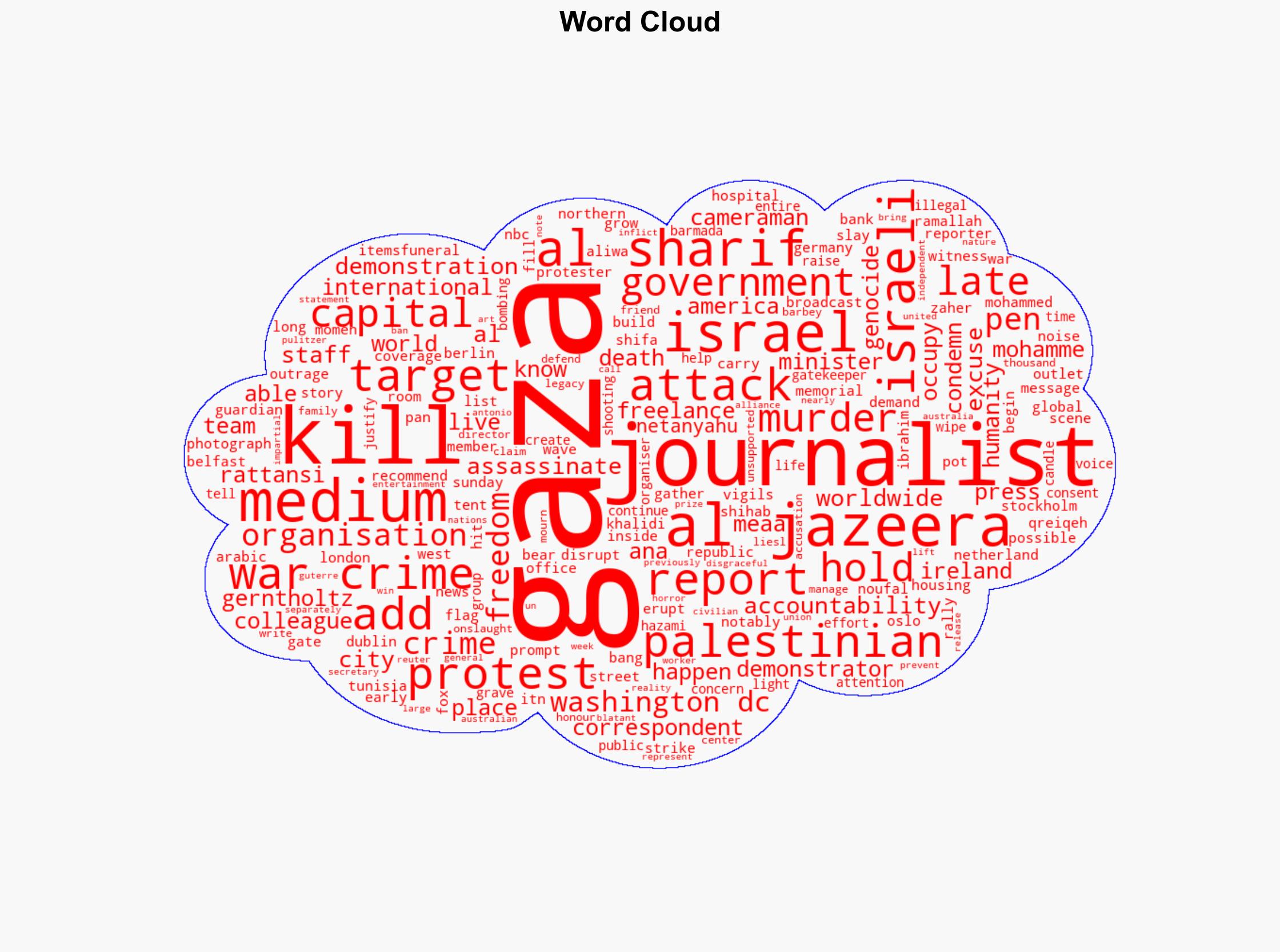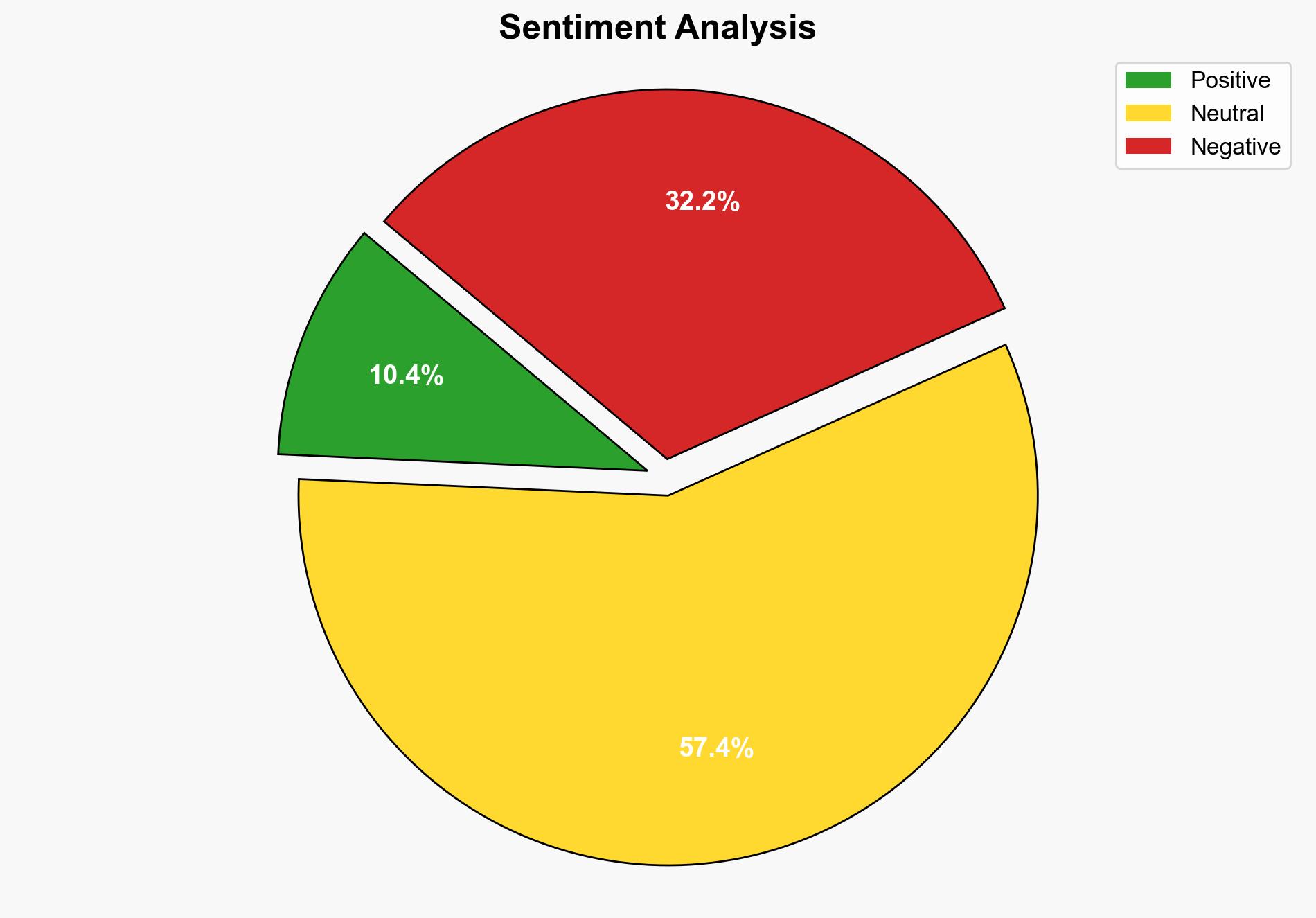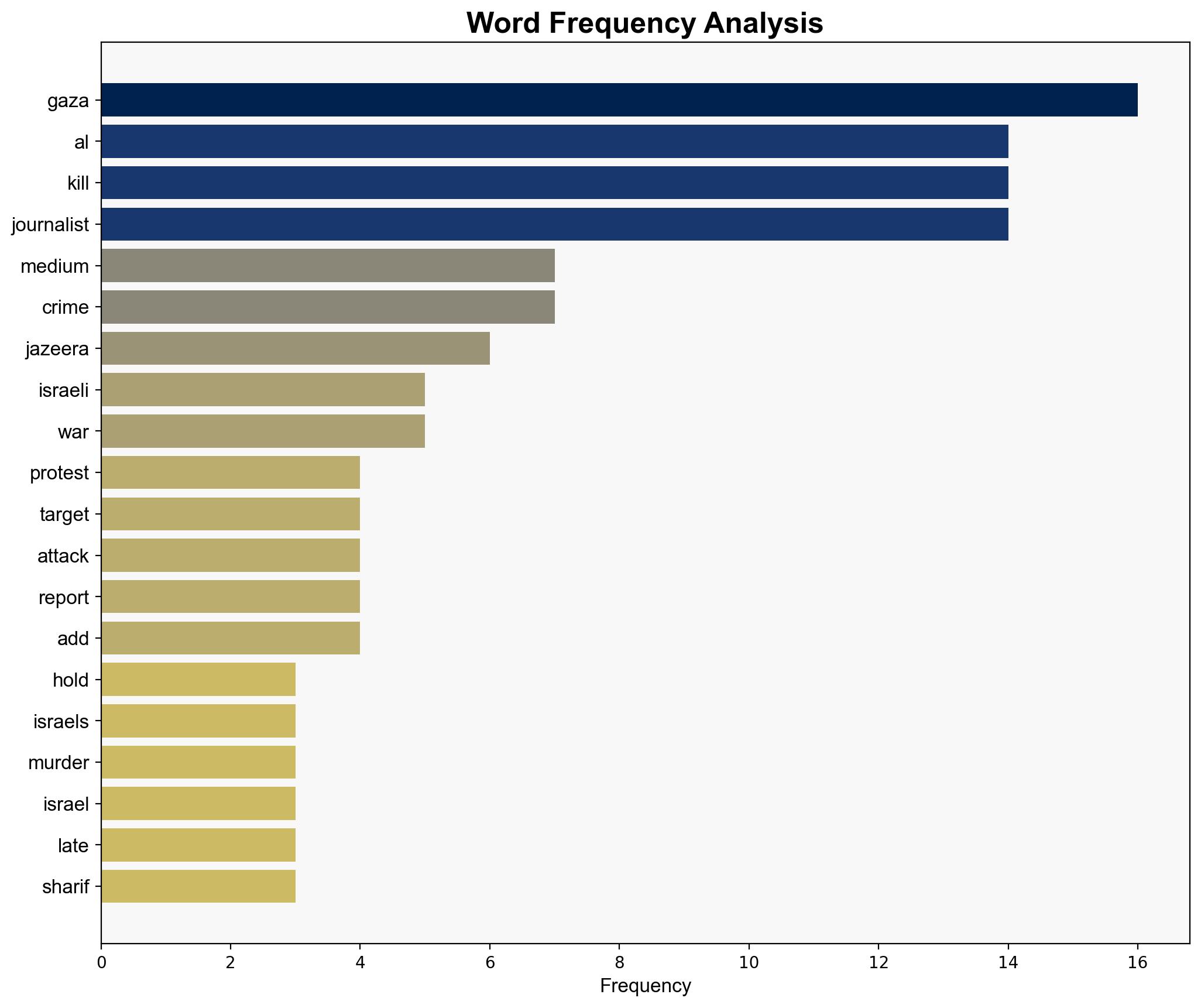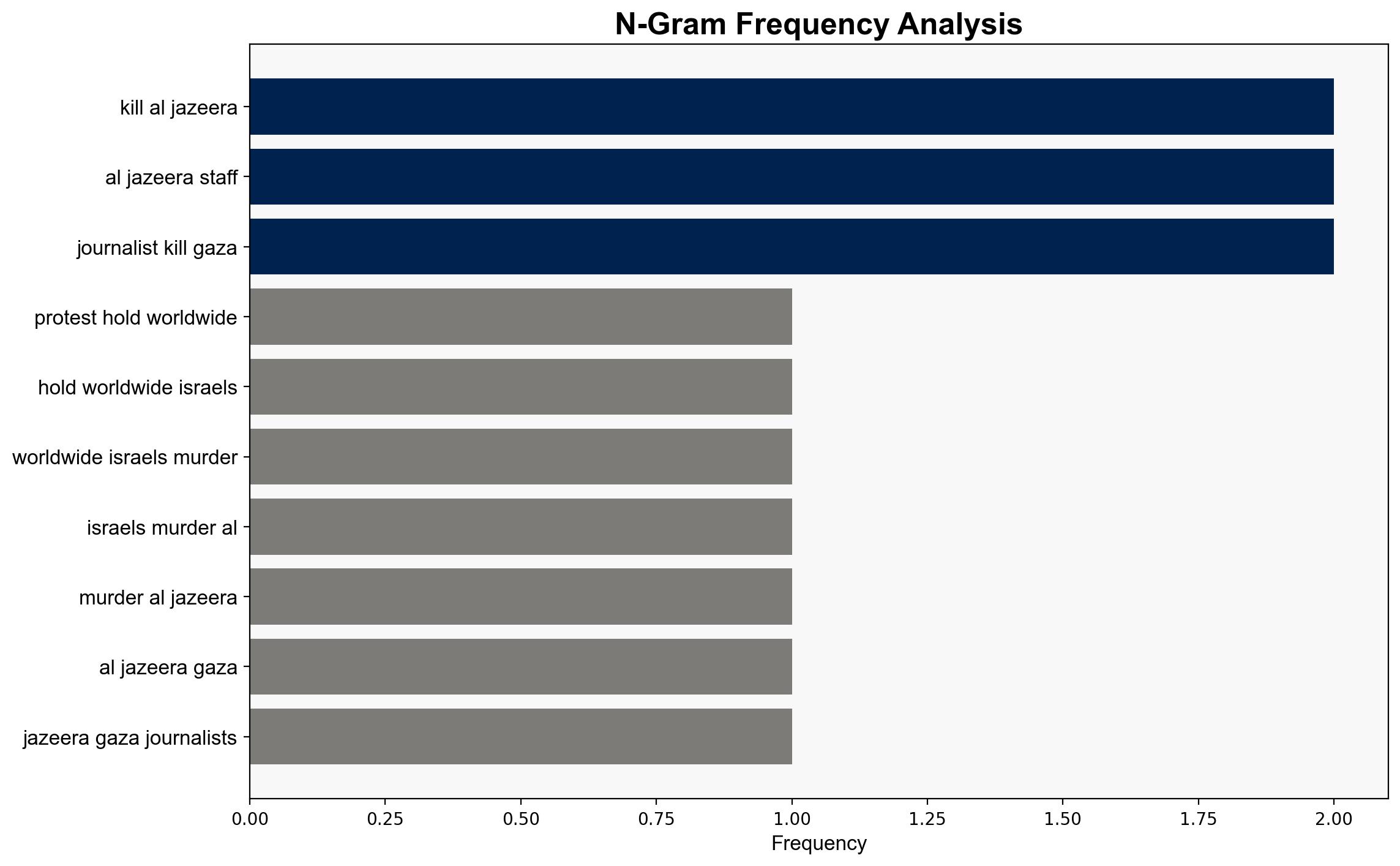Protests held worldwide over Israels murder of Al Jazeera Gaza journalists – Al Jazeera English
Published on: 2025-08-12
Intelligence Report: Protests held worldwide over Israels murder of Al Jazeera Gaza journalists – Al Jazeera English
1. BLUF (Bottom Line Up Front)
The most supported hypothesis is that the global protests are a reaction to perceived targeted attacks on journalists, which could escalate tensions between Israel and international media organizations. This report, using Analysis of Competing Hypotheses (ACH) 2.0, suggests a high confidence level in the hypothesis that these events are part of a broader narrative of media suppression in conflict zones. Recommended action includes diplomatic engagement to address media safety and prevent further escalation.
2. Competing Hypotheses
1. **Hypothesis A**: The protests are primarily driven by genuine outrage over the targeted killing of journalists, reflecting a broader concern for press freedom and human rights.
2. **Hypothesis B**: The protests are being leveraged by various groups to advance anti-Israel sentiment and apply international pressure on Israel for broader political objectives.
Using ACH 2.0, Hypothesis A is better supported by the widespread nature of protests and statements from international organizations condemning the attacks as violations of press freedom. Hypothesis B, while plausible, lacks direct evidence linking protest organization to broader political agendas beyond the immediate issue.
3. Key Assumptions and Red Flags
– **Assumptions**: It is assumed that the reported killings were indeed targeted and that the protests are spontaneous rather than orchestrated.
– **Red Flags**: Potential bias in media reporting and the possibility of misinformation influencing public perception. Lack of independent verification of the events described.
– **Blind Spots**: Limited insight into the internal decision-making processes of protest organizers and the Israeli government’s strategic communications.
4. Implications and Strategic Risks
The protests could lead to increased scrutiny of Israel’s military actions and policies, potentially affecting diplomatic relations. There is a risk of further escalation if media organizations amplify the narrative of targeted attacks. This could also lead to increased cyber threats against media outlets and Israeli entities, as well as potential economic impacts if international relations are strained.
5. Recommendations and Outlook
- Engage in diplomatic dialogue with international media organizations to address concerns and prevent further escalation.
- Monitor social media and cyber channels for misinformation and potential threats.
- Scenario-based projections:
- **Best Case**: Diplomatic resolutions lead to improved safety protocols for journalists in conflict zones.
- **Worst Case**: Escalation leads to broader geopolitical tensions and economic sanctions.
- **Most Likely**: Continued protests with limited direct impact on Israeli policy but increased international pressure.
6. Key Individuals and Entities
– Ana Al Sharif
– Mohammed Qreiqeh
– Ibrahim Zaher
– Mohammed Noufal
– Momen Aliwa
– Mohammed Al Khalidi
– Liesl Gerntholtz
– Hazami Barmada
– Antonio Guterres
7. Thematic Tags
national security threats, press freedom, geopolitical tensions, media safety, international relations




